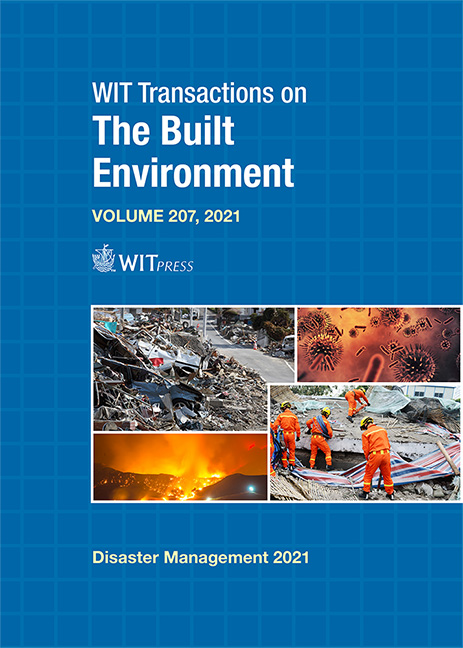CRITERION-REFERENCED ASSESSMENT INDEX FOR EVALUATING SOCIAL WELLBEING IN FLOOD RELIEF CAMPS
Price
Free (open access)
Transaction
Volume
207
Pages
14
Page Range
177 - 190
Published
2022
Paper DOI
10.2495/DMAN210141
Copyright
Author(s)
ADITYA S. NATH, RITIKA SHARMA, ARUNDAS KANDATHIL, CHINMAY KARAN, CHAITALI BASU
Abstract
The Sendai Framework for Disaster Risk Reduction advocates for reduction in disaster risk in the social assets of persons and communities. Well-being has been recognized by the World Health Organization as a significant determinant of health. Relief camps, being a vital community resource during the testing times of disaster, therefore, have a social obligation to enable expeditious recovery of displaced communities by offering social support. Despite the presence of numerous studies focusing on wellbeing in the built environment, very few explore social well-being in relief camps. The study aims to address this gap. The paper identifies social issues through mutual corroboration and interdependencies found by a mixed-review method involving three research approaches: comparative analyses of existing relief-camp guidelines, review of assessment reports of two prominent floods in India, and a structured interview of 255 inhabitants from 10 flood relief camps in the southern Indian state of Kerala. Recurrent issues were discerned from distinct sources, prompting the identification of assessment constructs and consequently, 50 assessment items falling under these constructs. The findings from this research can serve as an operative-index for evaluating social well-being in flood relief camps. The assessment index is fundamentally region-specific. However, the methodology employed may be adapted to develop similar indices. The originality of this research is in establishing the link between social well-being and relief-camps, and thereafter, formulating a method to assess social well-being in flood relief camps.
Keywords
social well-being, flooding, relief camp, resilience, community-centred, criterion-referenced assessment




